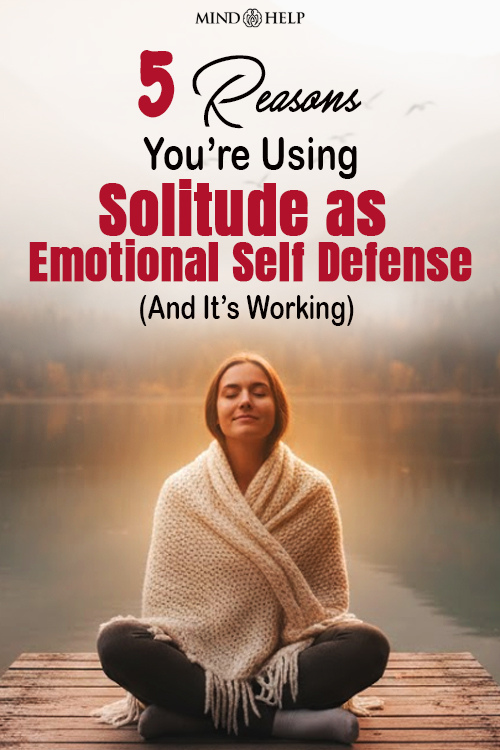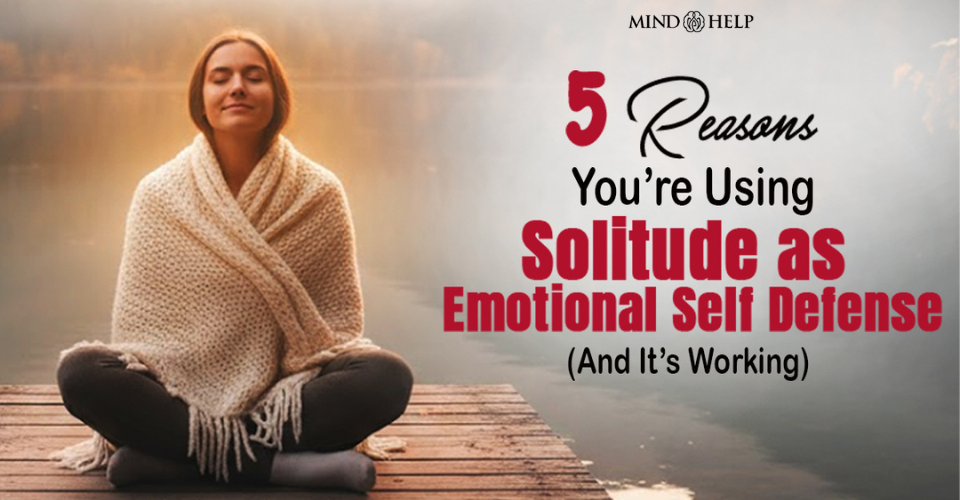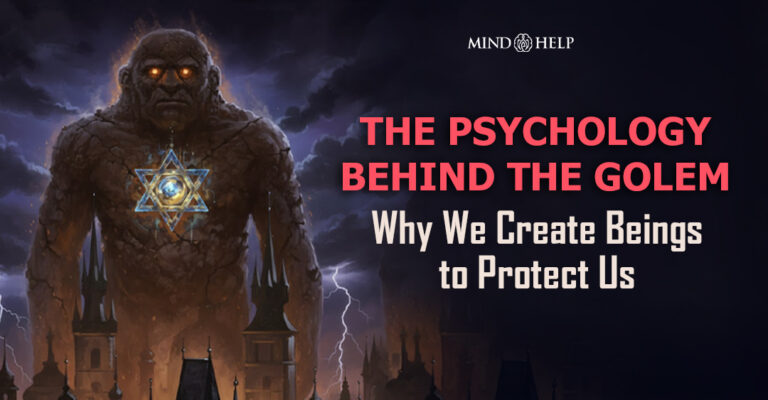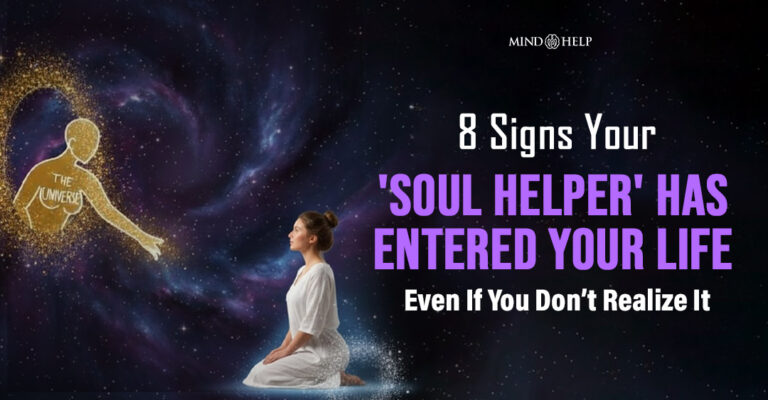These days, emotional self defense doesn’t always look like blocking people or building walls – sometimes, it’s just choosing peace over noise. More and more people are realizing that solitude isn’t loneliness; it’s therapy.
The connection between solitude and mental health runs deep – silence helps you reset, breathe, and come back to yourself. The benefits of solitude go beyond quiet time; they help heal emotional burnout and rebuild clarity.
When you understand the effects of solitude on mental health, you see it’s not withdrawal – it’s protection. The psychological effects of solitude are powerful enough to turn silence into strength.
Related: The Power of Solitude: Does It Lead To Inner Growth?
5 Reasons Solitude Is the Smartest Form of Emotional Self Defense
1. Solitude is the pause your mind desperately needs.
This is one of the biggest benefits of solitude.
When was the last time you were truly alone? Not scrolling, not performing, and just being? Overstimulation has been normalized so much that silence has started to feel horribly uncomfortable.
However, the reality is that solitude is your nervous system’s favorite sound.
When you take a break from non-stop buzz, something amazing happens. Your thoughts stop competing. Your breathing evens out. You begin to hear your inner voice once more.
One of the psychological effects of solitude on mental health is how it resets your brain, like hitting “refresh” after too many tabs have been open for too long.
Solitude isn’t isolation; it’s restoration. The more you practice it, the more you realize that peace is addictive.
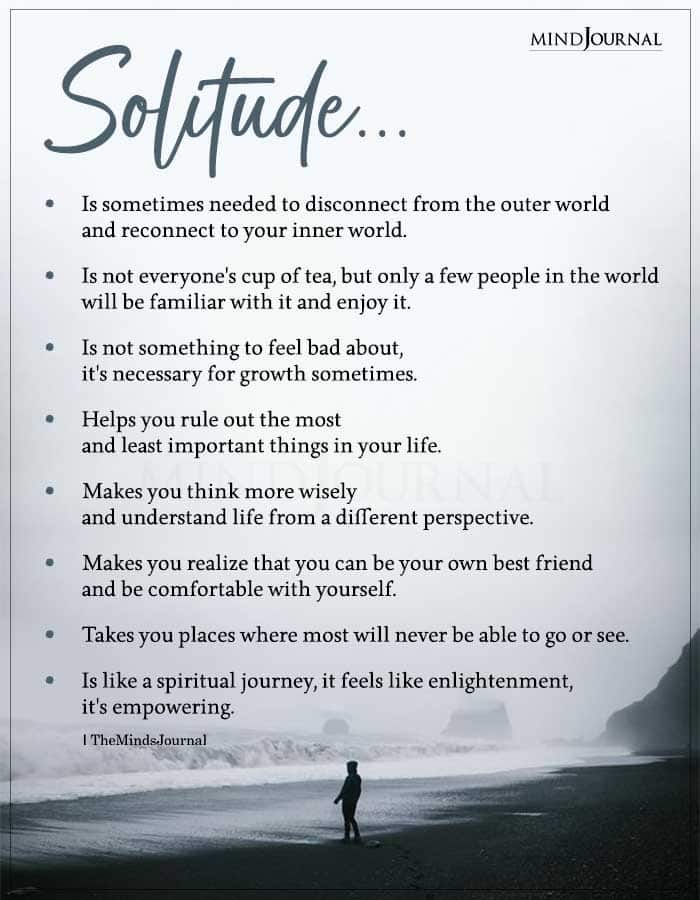
2. Alone time helps you filter the noise and the people.
Let’s be honest – we’re constantly absorbing energy that doesn’t belong to us. Friends vent. Partners complain. Social media screams. Next thing you know, you are emotionally drained and you don’t even know why.
This is where emotional self defense steps in: solitude gives you a filter. This is where you choose what remains and what leaves. The advantages of solitude are that it can allow you to see what really matters.
In that quiet room, you stop over-explaining yourself. You stop seeking validation from others. You begin to understand that silence doesn’t have to be filled, it must be felt. That’s when you start guarding your energy, not wasting it.
3. Solitude helps you reconnect with the real you.
Occasionally, isolation is less about fleeing the world and more about returning to yourself.
When you spend long enough by yourself, you begin to hear that internal voice that’s otherwise drowned out by all the other people’s opinions. You recall what you like. You recall what you desire. You recall you.
The psychological effects of solitude here is strong. It serves to disentangle your sense of self from the individuals you’ve been attempting to appease. You cease being a product of others and begin being a more defined version of yourself.
Alone, self-knowledge gets clearer. You understand that “being alone” isn’t loneliness — it’s authenticity. And in that authenticity, healing happens.
4. Solitude builds emotional muscle.
One of the major benefits of solitude is this right here.
Being alone used to scare people, but now it makes them feel better and stronger. The real effects of solitude on mental health show up when you stop depending on other people to handle your emotions.
You learn how to soothe your anxiety without texting someone. You learn to face your sadness without numbing or distracting it. You learn that the storm always passes, and you didn’t need an umbrella handed to you; you built your own shelter.
That’s emotional self defense at its best: the quiet kind that doesn’t come from confrontation, but from self-regulation. You stop being reactive and start being reflective.
And that shift? That’s freedom..
5. Solitude protects your energy in a world that drains it.
We live in a world where everybody wants a piece of you, be it your time, your attention, your feelings. And solitude is how you reclaim it all. When you move away from all the noise, you realize how overstimulation destroys your peace.
The constant news, the chaos, the expectations – they all demand pieces of your peace. That’s why solitude has become the ultimate emotional self defense.
From a solitude and mental health perspective, it’s like building an invisible armor. You don’t do this to shut people off, but to stop letting the world silence your inner stillness.
Protecting your energy is not selfish, it’s survival.

Silence Is Not Emptiness – It’s Protection
Solitude isn’t about being isolated, rather it’s about being grounded. The benefits of solitude go beyond peace and quiet – it’s about remembering your own power in a world that constantly tells you to give it away.
The psychological effects of solitude reveal one simple truth: time alone is not a luxury anymore; it’s a necessity. Solitude gives you perspective. It gives you strength. It gives you yourself.
Related: The Power Of Alone Time: 9 Surprising Benefits Of Solitude
So, turn down the noise. Log out. Stay in. Don’t mistake your silence for weakness – it’s just you practicing emotional self defense in the loudest world we have ever lived in.
Because sometimes, protecting your peace isn’t about building walls – it’s about closing the door, sitting in the quiet, and realizing you were safe with yourself all along.
